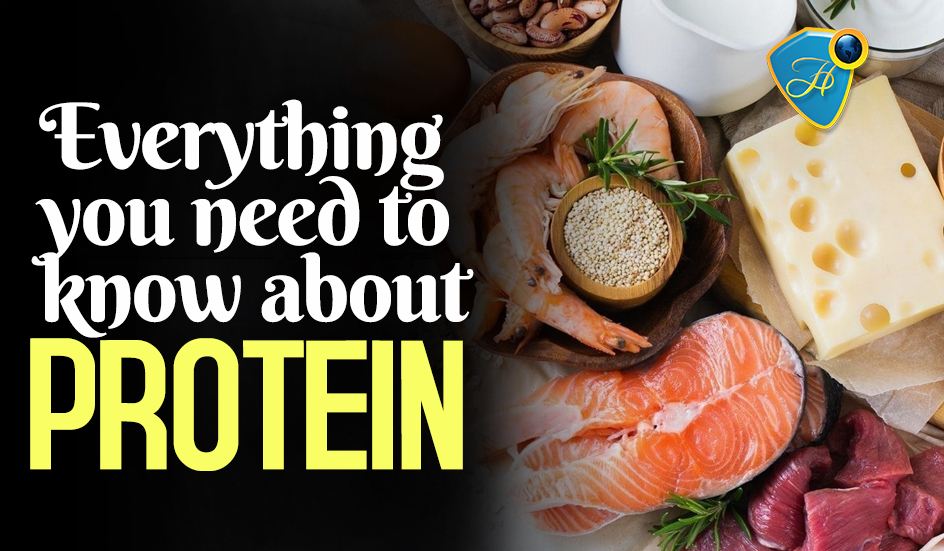
Protein is a naturally occurring substance that is present in all living organisms and is included in many essential biological compounds such as enzymes, hormones, and antibodies. The body needs protein to remain healthy, and there are more than 10,000 different types of protein needed to help the body work as it should. Proteins are found in everything, from tissues, muscles, and organs to hair, skin, and bones. Several processes that fuel energy and carry oxygen throughout the body require one form of protein or another. Proteins are also needed for making antibodies that combat infections and illnesses, keeping cells healthy, and creating new ones.
Many studies argue about how much carbohydrates and fats one should consume, but most nutritionists, dieticians, and health experts agree that proteins are vital to every diet.
Here are some health benefits of consuming proteins:
Protein-rich foods are typically very filling and reduce ghrelin (the hormone that causes hunger), thus reducing appetite for food. This makes such foods ideal for your weight regulation plans.
Proteins help build and increase muscle mass and strength. Adequate protein intake is vital for avoiding muscle loss, especially for the physically active.
Proteins are highly beneficial to healthy bones, as they help maintain bone mass, thus reducing risks that are related to aging, such as fractures and osteoporosis.
High protein consumption boosts metabolism, thus using up calories. One research showed that people on a high-protein diet burned 260 calories more; that is equivalent to one hour of moderate-intensity exercise.
Proteins improve heart health by reducing LDL (bad) cholesterol, blood pressure, and triglycerides (a type of fat found in the blood).
Your body will recover faster from injuries if you eat more protein, as it helps the body to repair itself.
PROTEIN SOURCES
Proteins are commonly found in animal products, but are also present in other sources such as fruits, nuts, and legumes. The following are great sources of protein:
Beans and Legumes:
Beans and legumes have countless species and varieties, provide protein, fiber and vitamin B, and are commonly eaten around the world. Ideal meat replacements for vegetarians, beans and legumes also reduce cholesterol and blood sugar levels, and increase healthy bacteria in the stomach. Common options include chick peas, lentils, peas, kidney beans, peanuts (yes, they are legumes), black beans, soybeans, pinto beans, etc.
Meat and Fish:
These are the go-to food groups for protein and fats. Poultry, especially chicken and turkey, provides readily-available, low-fat options for protein, can easily be added to other foods, and can be cooked in numerous ways. Fish and other seafood, whether dried, smoked, fried, canned in oil, etc., provide protein in savory and delicious variants. Beef, veal, Iamb (& mutton), venison, goat, and pork are also excellent protein sources.
Wholegrains:
Though typically considered for their high-carbohydrate content, these wholegrains also pack a healthy helping of protein: quinoa, oats, cornmeal, kamut (wheat berries), teff, whole wheat, wild rice, millet, couscous, and buckwheat.
Animal Products:
Eggs and milk are the main food derived directly from animals, and they are super healthy and protein-rich. Milk is further processed into butter, yoghurt, and cheese, which have protein in varying degrees.
Nuts:
Whether as a snack or an addition to a meal, nuts are delicious, protein-rich foods that are handy and versatile. Popular options include almonds, walnuts, pistachios, pecans, hazelnuts, pine nuts, and cashews.
Fruits:
You probably never thought of it, but some fruits are a sweet way to introduce an extra dose of protein to your diet. The protein is in small amounts, but every little bit counts. Guava, avocado, jackfruit, kiwi, apricot, blackberries, raspberries, raisins, bananas, grapefruit, oranges, and cherries all have protein, ranging from 2-5 grams in every 100 grams.








